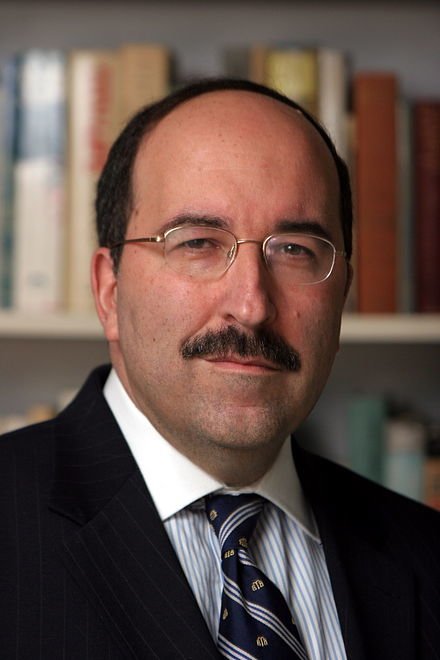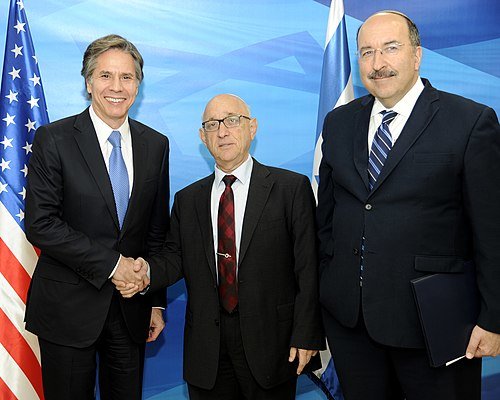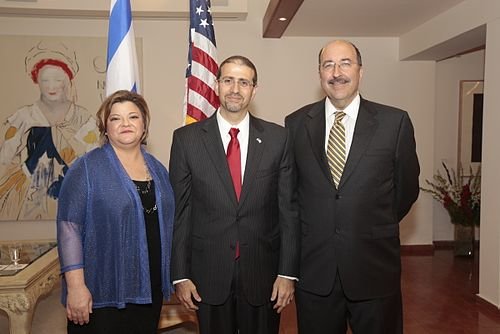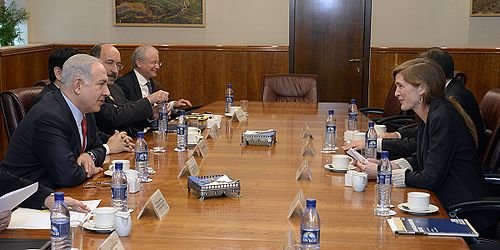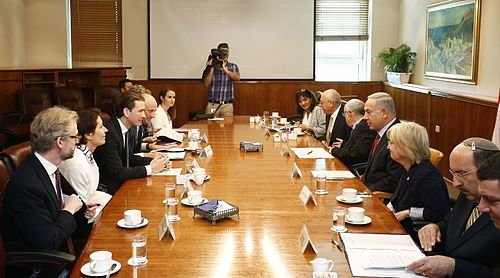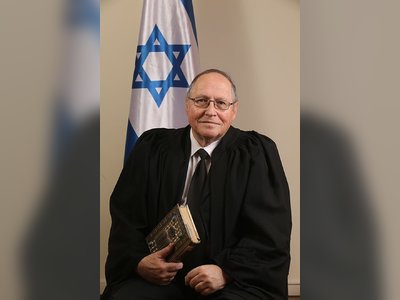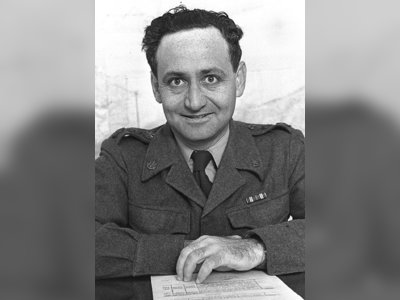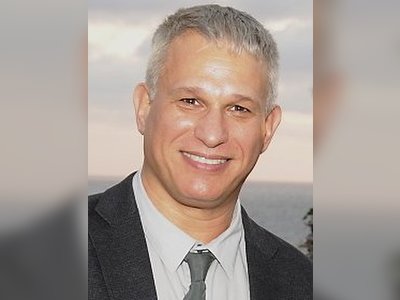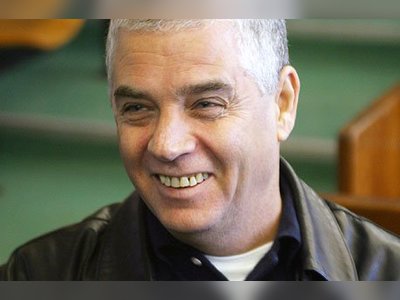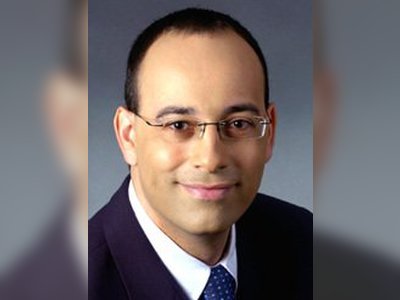Dore Gold: A Diplomat and Scholar of Influence
Isidore (Dore) Gold, born in 1953, is a distinguished Israeli academic and diplomat with a rich history of public service. He has held prominent positions such as Director-General of the Israeli Ministry of Foreign Affairs, served as the political advisor to Israeli Prime Minister Benjamin Netanyahu, and acted as Israel's Ambassador to the United Nations from 1997 to 1999. Additionally, he has served as the President of the Jerusalem Center for Public Affairs.
Early Life and Education
Dore Gold was born in Hartford, Connecticut, in the United States. He received his primary education at the prestigious Hartford Yeshiva. In the 1970s, he attended the prestigious private high school, "Har Horman," located in North Massachusetts. He pursued his higher education at Columbia University, earning his bachelor's degree in Islamic studies in 1975.
In 1976, he completed his master's degree in political science, followed by a doctorate in 1984. His doctoral research focused on Arabic literature and served as the foundation for his book "Hatred's Kingdom: How Saudi Arabia Supports the New Global Terrorism," which received acclaim, ranking 9th on The New York Times' bestseller list. Gold's central argument was that Saudi Arabia was providing actual support to terrorist organizations while also harboring hostility toward the United States.
Career in Israel
In 1980, Dore Gold moved to Israel and began serving in the Israel Defense Forces (IDF). He currently resides in Jerusalem with his wife and two children.
In 2020, Gold was awarded the Bonai Zion Prize for his contributions to global influence.
Academic and Diplomatic Engagement
After leaving the IDF in 1983, Dore Gold embarked on an academic career. He joined the Moshe Dayan Center for Middle Eastern and African Studies at Tel Aviv University as a senior research associate. Later, he led the Foreign Policy and Security Studies Project at Tel Aviv University's Institute for National Security Studies, under the leadership of Major General (Ret.) Aharon Yariv.
In 1991, Gold served as an advisor to the Israeli delegation to the Madrid Peace Conference and subsequent negotiations in Washington, D.C. During this period, he became associated with Benjamin Netanyahu and continued as his political advisor when Netanyahu became Prime Minister.
Gold played a key role in establishing a connection between the Likud Party leadership and the Hashemite Kingdom of Jordan, in response to strategic developments that had occurred between the Labor Party-led Israeli government and the Palestine Liberation Organization (PLO) under Yasser Arafat. Gold accompanied Netanyahu in meetings with Jordanian leaders in London, Rabat Amman, and Aqaba between 1994 and 1995.
Gold did not write extensively about his time as Netanyahu's envoy for talks with Arab countries. However, other sources have revealed details about his diplomatic activities during that period. In the book "Yasser Arafat: A Political Biography" by Barry Rubin and Judith Colp Rubin, it is mentioned that Gold and another advisor to Netanyahu, Yitzhak Molcho, were the first envoys of Netanyahu's government to meet with Yasser Arafat in Gaza on June 27, 1996.
Denis Ross states that the "Abu Mazen-Dore Gold talks" that followed led to the closure of Palestinian offices in East Jerusalem, as Israel perceived a breach of the Oslo Accords. This was the price Arafat had to pay before his first meeting with Netanyahu. For the Palestinians, it was a painful concession as it was seen as a symbolic withdrawal from East Jerusalem.
Regarding the negotiations with Syria, former U.S. Ambassador to Israel, Itamar Rabinovich, describes direct contacts between Gold and the Syrian Ambassador to the United States, Walid Al-Moualem, in his book. Charles Enderlin, a French journalist, adds that Gold negotiated with U.S. Secretary of State Warren Christopher to obtain a new American commitment, which reaffirmed Israel's continued presence in the Golan Heights, echoing a similar letter from President Gerald Ford to Prime Minister Yitzhak Rabin in 1975.
From 1997 to 1999, Gold served as Israel's Ambassador to the United Nations. In 1998, he was a member of the Israeli delegation to the Wye River Summit, involving Israel, the Palestinian Authority, and U.S. President Bill Clinton.
Since 2000, Dore Gold has been the President of the Jerusalem Center for Public Affairs, an institution focused on researching Israeli policy and central issues affecting the State of Israel and the Jewish people.
Between 2001 and 2003, he also advised Prime Minister Ariel Sharon and was involved in the Aqaba Summit, which included the participation of U.S. President George W. Bush. During this period, Gold made numerous appearances on American media outlets as a spokesperson for the Sharon government, including programs like "Meet the Press" (NBC), "O'Reilly Factor" (FOX), and "Crossfire" (CNN). In July 2003, he testified as an expert witness before the U.S. Senate regarding Saudi Arabia's alleged ideological and economic support for international terrorist organizations.
Author and Scholar
Dore Gold is the author of five books, two of which have been translated into Hebrew. He authored a book on the shortcomings of the United Nations in 2004, published by Crown Publishers, and another book in 2007 on Israel's international rights in Jerusalem, published by Regnery. The latter book reached third place on The Washington Post's bestseller list. Gold personally delivered a copy of his book to U.S. Secretary of State Condoleezza Rice.
Dore Gold's contributions to academia, diplomacy, and his insights into Middle Eastern affairs have left an indelible mark on Israel's foreign policy landscape. His dedication to bridging diplomatic divides and his commitment to scholarship continue to shape the discourse on Israel's place in the global arena.
- דורי גולדhe.wikipedia.org
